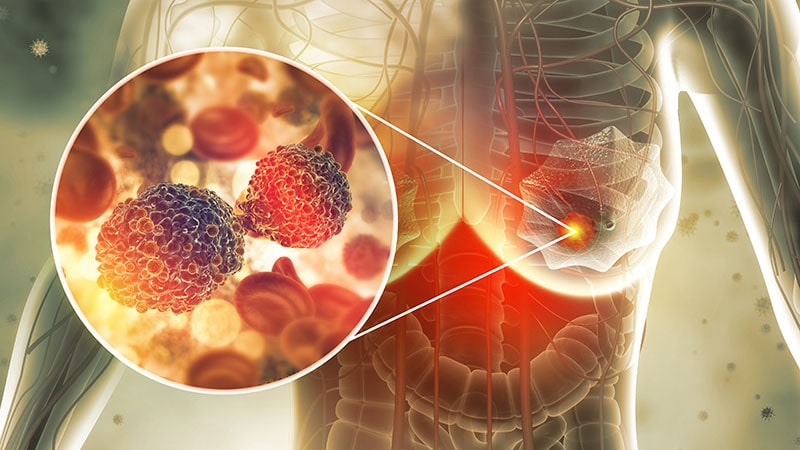New Test for HER2+ Breast Cancer to Personalize Therapy
Concetti Chiave
Personalized treatment for HER2+ breast cancer is achievable through a novel molecular classifier test.
Sintesi
The content discusses the development of a new test for HER2+ breast cancer by researchers at Baylor College of Medicine. The test aims to personalize treatment by predicting which patients are suitable for targeted anti-HER treatment or other therapies. Key highlights include:
- Introduction of a multiparameter molecular classifier test for HER2+ breast cancer.
- Importance of personalized treatment based on HER2 protein levels.
- Development of a novel molecular classifier test with three components.
- Validation of the test in clinical trials showing high predictive values.
- Potential for safe treatment de-escalation with personalized therapy.
- Plans for further evaluation in prospective clinical trials.
Personalizza riepilogo
Riscrivi con l'IA
Genera citazioni
Traduci origine
In un'altra lingua
Genera mappa mentale
dal contenuto originale
Visita l'originale
www.medscape.com
New Test for HER2+ Breast Cancer to Personalize Therapy
Statistiche
"The findings are reported by Jamunarani Veeraraghavan, MD, and colleagues this week in Clinical Cancer Research."
"HER2+ breast cancer, which represents about 1 of every 5 breast cancers, expresses high levels of HER2 proteins..."
"The team of investigators has been working for years to identify the most effective approach to treat HER2+ breast cancer."
"Test validation in the current study used baseline HER2+ breast cancer tumor specimens obtained from patients who participated in the TBCRC023 and PAMELA clinical trials..."
"A decision-tree algorithm was used to construct GPA cutoffs and classifier of response in TBCRC023, and this yielded a positive predictive value (PPV) of 55% and negative predictive value (NPV) of 94%."
Citazioni
"Traditionally, in an effort to eliminate the tumor, we give patients more aggressive treatments, but these also increase the toxicity and affect the patient's quality of life."
"Our findings strongly support that safe treatment de-escalation is possible."
"If validated prospectively, our classifier may function as a molecular triaging tool to safely and appropriately select patients with HER2+ breast cancer for treatment de-escalation."
Approfondimenti chiave tratti da
by Sharon Worce... alle www.medscape.com 06-30-2023
https://www.medscape.com/viewarticle/993904
Domande più approfondite
How can personalized treatment impact the overall quality of life for patients with HER2+ breast cancer?
Personalized treatment for HER2+ breast cancer can significantly impact the overall quality of life for patients by tailoring therapy to individual characteristics of the tumor. By utilizing a molecular classifier test to identify which patients are suitable for targeted anti-HER treatment versus chemotherapy or other therapies, healthcare providers can avoid unnecessary aggressive treatments that may increase toxicity and negatively affect the patient's well-being. This personalized approach minimizes the side effects of treatment, enhances treatment efficacy, and improves the patient's quality of life by providing them with the most effective and appropriate therapy based on their specific tumor biology.
What are the potential drawbacks or limitations of using a molecular classifier for treatment selection?
While molecular classifiers offer a promising way to personalize treatment for HER2+ breast cancer patients, there are potential drawbacks and limitations to consider. One limitation is the need for validation and standardization of these tests to ensure their accuracy and reliability across different patient populations and healthcare settings. Additionally, the cost of molecular testing may be a barrier for some patients or healthcare systems, potentially limiting access to personalized treatment options. Interpretation of test results and the complexity of integrating molecular data into clinical decision-making processes can also pose challenges for healthcare providers. Furthermore, the evolving nature of cancer biology and the development of resistance mechanisms may impact the long-term effectiveness of treatment strategies based on molecular classifiers.
How can advancements in precision medicine influence the future of cancer treatment beyond HER2+ breast cancer?
Advancements in precision medicine have the potential to revolutionize cancer treatment beyond HER2+ breast cancer by enabling a more targeted and personalized approach to therapy. By leveraging molecular profiling, genomic sequencing, and other advanced technologies, healthcare providers can identify specific genetic alterations and biomarkers in tumors that drive cancer growth and progression. This knowledge allows for the development of tailored treatment strategies that target the underlying molecular pathways driving cancer, leading to improved treatment outcomes and reduced toxicity. Precision medicine also opens up opportunities for combination therapies, immunotherapies, and novel treatment modalities that target specific vulnerabilities in cancer cells. As our understanding of cancer biology continues to expand, precision medicine holds great promise for transforming the future of cancer treatment across various cancer types.
0
